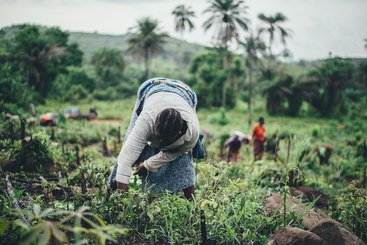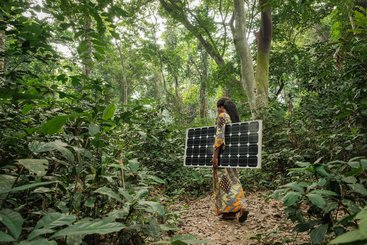Access to efficient and reliable renewable energy can provide significant climate, development and equity benefits. Transitions to clean energy are compatible with sustainable economic development and women’s economic empowerment. However, in the absence of adequate policies, such transitions may reinforce existing inequalities.
Initiated by Canada’s International Development Research Centre (IDRC), the Gender Equality in a Low-Carbon World (GLOW) programme supports projects in different countries to investigate how women’s economic empowerment can be integrated into low-carbon, climate-resilient transitions.
This policy brief was co-authored by IDRC, Duke University, and the Climate and Development Knowledge Network (CDKN) ahead of the Think20 (T20) Summit in India. The brief summarises the evidence that supports, and the knowledge gaps that hinder, clean and inclusive energy transitions. It concludes that alongside addressing finance gaps and implementation barriers, tackling systemic socioeconomic inequalities is critical for inclusive clean energy transitions.
The report highlights that the G20 is well positioned to facilitate the sharing of innovative practices that can positively impact the lives of vulnerable populations experiencing these transitions.
Authors: Arjan de Haan, Mairi Dupar, Marc Jeuland, Jonathan Phillips, Monica Marcela Jaime Torres, Bhim Adhikari, Flaubert Mbiekop
-
Making clean energy transtitions more inclusive: Evidence, knowledge gaps and policy options in low-income economies
Read more about Making clean energy transtitions more inclusive: Evidence, knowledge gaps and policy options in low-income economies.


